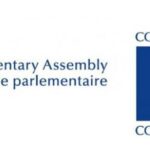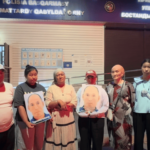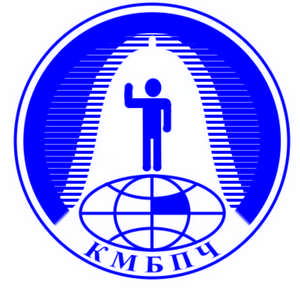On the occasion of June 28, Media Workers’ Day, numerous professionals received the keys to new apartments—presented in the name of the President of Kazakhstan. At the same time, half a dozen journalists and bloggers are imprisoned, and dozens of criminal proceedings arise every year in connection with the professional activities of journalists.
June 28 is not a date chosen at random to celebrate Media Workers’ Day. In fact, on June 28, 1991, the first national law “On the Press and Other Mass Media” was adopted. This law, it should be recalled, was meant to guarantee legal rights such as freedom of speech and expression of opinion, as well as the freedom to establish media enterprises. It states that the media are intended to serve the needs of political movements and social groups in freely disseminating their information.
In recent days, on the occasion of this national holiday, the Kazakh president and the state have shown themselves unusually generous and proud of the country’s journalistic community. One might have thought it was Christmas for journalists, as gifts and accolades poured in. Some media workers received financial grants, while four individuals were awarded State Prizes by President Tokayev for their significant contributions to the development of national journalism. Several journalists and state media outlets were also publicly thanked by the president. As if that weren’t enough, 66 apartments were handed over to various individuals working in the media sector — “by order of the president.” Tokayev also used the occasion to reaffirm both the importance of the profession and his sincere support for the journalistic community.
According to the organization, Kazakhstan reserves the right to arbitrarily deny accreditation to any media outlet or journalist on the grounds of “national security.” Kazakh authorities have not hesitated to use underhanded tactics to silence journalists — including arrests, physical attacks, threats, electronic surveillance, and blackouts of telecommunications and internet access, particularly to block media coverage of major events such as the January 2022 protests that left hundreds dead. Other common tactics include the use of force and arrests on fabricated charges.
Concrete examples abound, and on this June 30th, it would be fitting — even essential — to shine a light on the names of those who are currently persecuted for their fight in defense of freedom of expression.
For no forgetting, no forgiveness can be granted. The profession, the ethics, and the very soul of journalism cannot be bartered or sold to the devil in exchange for a few apartments or presidential subsidies.
Therefore :
Aidos Sadykov
On June 18, 2024, opposition journalist Aidos Sadykov was shot in an attack in Kyiv and died two weeks later. Two Kazakh citizens, Altai Zhakanbayev and Meiram Karatayev, are suspected of carrying out the attack before fleeing Ukraine.
Despite official cooperation requests from the Ukrainian Prosecutor’s Office, Kazakh authorities have refused to assist, neither questioning nor charging the suspects. Zhakanbayev was released on bail, while Karatayev is not even being sought. According to Natalia Sadykova, the journalist’s wife, Kazakhstan is obstructing the investigation and violating international agreements to protect the suspected perpetrators.
The Sadykovs, who had taken refuge in Ukraine, ran a YouTube channel called “Base,” where they exposed corruption and abuses by the Kazakh regime. The suspects are believed to have ties to Kazakh security forces, further fueling suspicions of a politically motivated assassination.
Oleg Gusev
Oleg Gusev, a journalist based in Temirtau, published an article recounting the story of a woman, in which he mentioned, among other things, the existence of her criminal record. Following the publication, the woman filed a complaint against him, accusing him of disseminating her personal data. Mr. Gusev was then charged by the police under Article 147 of the Criminal Code of the Republic of Kazakhstan for “serious violation of the rights and legitimate interests of a person through the unlawful dissemination of personal data in the media” — an offense punishable by 3 to 7 years in prison.
Yet the information used by the journalist came from official publications of the Supreme Court, freely accessible on its website.
Duman Mukhammedkarim
On November 7, 2024, the Court of Appeal upheld the conviction of opposition journalist Duman Mukhammedkarim, who had been found guilty in the first instance of “participation in a banned organization” and “financing of extremism,” and sentenced to seven years in prison. During the appeal hearing, the prosecutor also requested that he be prohibited from attending public events, visiting public places, participating in rallies, and giving interviews to the media — a request the judge granted.
Makhambet Abzhan
On February 3, 2023, journalist Makhambet Abzhan was sentenced to nine years in prison for “deliberate dissemination of false information” and “blackmail.” In reality, he had published compromising information on his Telegram channel in July 2022 concerning the nephew of President Kassym-Jomart Tokayev and other influential businessmen.
Aigerim Tleuzhan
A professional translator and journalist, Aigerim Tleuzhan was politically active with Zhanbolat Mamay’s “Democratic Party.” She was repeatedly arrested and sentenced to administrative detention for participating in protests. However, the most shocking conviction came on July 11, 2023, in connection with the so-called “seizure of Almaty airport” during the January 2022 events (Kantar). She was sentenced to four years in prison for her alleged role in organizing the event, despite the lack of direct evidence — apart from a single video showing her clapping in a crowd.
Lukpan Akhmedyarov
Kazakh journalist Lukpan Akhmedyarov was arrested in Astana after publishing a video in which he exposed the forced enlistment of young Kazakhs in Russia under the pretense of a job offer. A woman who had initially asked him to publicize her brother’s case later filed a complaint against him, but later claimed that the police had forced her to accuse the journalist by threatening her with prosecution. Akhmedyarov is currently considered a witness with the right to a defense, and the woman is now planning to withdraw her complaint. Her brother has since been brought back to Kazakhstan.
Damir Kusheev – April 2025
On January 23, 2025, Almaty-based blogger Damir Kusheev was arrested after publishing a post exposing the preferential treatment given to Bakhtiyar Blayev, a former MP convicted of corruption who was seen moving freely in public while supposedly serving his sentence.
Initially charged with abuse of power, Kusheev was placed in pre-trial detention for two months. Later, a more serious charge of extortion was brought against him, extending his detention by another two months.
According to his wife, Akmeir Kusheeva, who has been trying in vain to see him with the help of an activist, no visits have been allowed since his arrest. She disputes the new charge, believing it is an attempt to silence Damir following his revelations about abuses in Kazakhstan’s penal system.
Temirlan Yensebek
Temirlan Yensebek is a Kazakhstani journalist and founder of Qaznews24, a satirical media project known for its political parodies. On 11 April 2025, Yensebek was sentenced by an Almaty court to five years’ restriction of freedom under Article 174 of the Criminal Code of the Republic of Kazakhstan – ‘incitement of ethnic hatred’. The reason for the criminal prosecution was a publication in which Qaznews24 ironically reacted to statements by Russian TV presenter Tina Kandelaki. The post was accompanied by the song ‘Yo, orystar’ (‘Hey, Russians’).
Gulnara Bazhkenova
Editor-in-chief of the independent media outlet Orda.kz, Gulnara Bazhkenova — along with her team — has been subjected to a systematic harassment campaign since December 2024, aimed at silencing her and taking over her newsroom. Fake police officers, defamation, the leaking of personal data, dubious online ads, cyberattacks, account hacking, and identity theft — a range of tactics have been used to target and intimidate her.
Arrests that are deeply troubling and alarming in terms of human rights, the principle of equality before the law, and, above all, the future of journalists and those who dare to speak out in the country.
Currently, six journalists and bloggers are in detention. In the history of independent Kazakhstan, the number of journalists convicted for their professional activities is in the dozens. Hundreds of journalists have been involved in criminal cases related to publications or videos.
And yet, it’s almost enough to make one forget that, according to the 2025 World Press Freedom Index by Reporters Without Borders — an organization that works to protect journalists and media professionals — Kazakhstan ranks 141st out of 180 countries in terms of press freedom. To be fair, this does represent a slight improvement from last year, when the country ranked 142nd. However, just a few years ago, Kazakhstan held the 134th position, showing that progress has been neither steady nor reassuring.


















